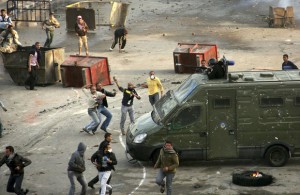After the whirlwind revolutions in Tunisia and Egypt that culminated in the expulsions of longtime rulers Zine al-Abidine bin

Ali and Hosni Mubarak respectively, Yemen has opted to embark on its own colossal insurgency to remove President Ali Abdullah Saleh from his thirty-two year rule. Like the aforementioned leaders, Saleh and his administration have been accused of mass corruption ranging from abuse crimes to theft to political nepotism.
At present, protesters have called for the ousting of Saleh and a vice-president to act as interim president and focus on change. In fact, according to reports in Washington, Saleh was already given an ultimatum that would guarantee a diplomatic departure and public summons for stepping down, in the case of noncompliance. Even, the United Arab Emirates’ Gulf Cooperation Council proposed he abdicate his position in exchange for protection from prosecution for himself and his family.
Despite these efforts, Saleh has refused. Instead, he has stated that he will wait until his term is over to resign. However, due to this lack of cooperation, protesters have begun to act out in several other cities. “The next step is putting aid to Yemen on the table and saying that there are going to be serious consequences if Saleh continues to use violence against his own people,” said Shadi Hamid, an analyst at the Brookings Doha Center in Qatar.
To suppress the revolts incited by the people’s frustration with the government, Saleh has sent out riot police to use brutality and tear gas on anyone in opposition. In the city of Taiz alone, 15 people were killed and 30 more were injured after police discovered them trying to breach a government building.
Similar to this, following a 2:00 a.m. protest in the nearby city of Hudaida, police attacked protesters heading to the presidential palace. Consequently, three people were struck by bullets, 30 were stabbed by knives, and 270 others were harmed from the inhalation of tear gas. “The regime has surprised us with this extent of killing. I don’t think the people will do anything other than come out with bare chests to drain the government of all its ammunition,” parliamentarian Mohammed Muqbil al-Hamiri told Al Jazeera TV.
With the rebellion giving way to social and political upheaval, many cities in the south of Yemen have generated strikes which have shut down schools, shops, and many state offices. And because Yemen has a large presence of Al-Qaida forces present, there is also the concern that continual mutiny will allow for Al-Qaida to rise in power and give way to more terrorist attacks. Since protests started in mid-February, more than 120 people have died.







